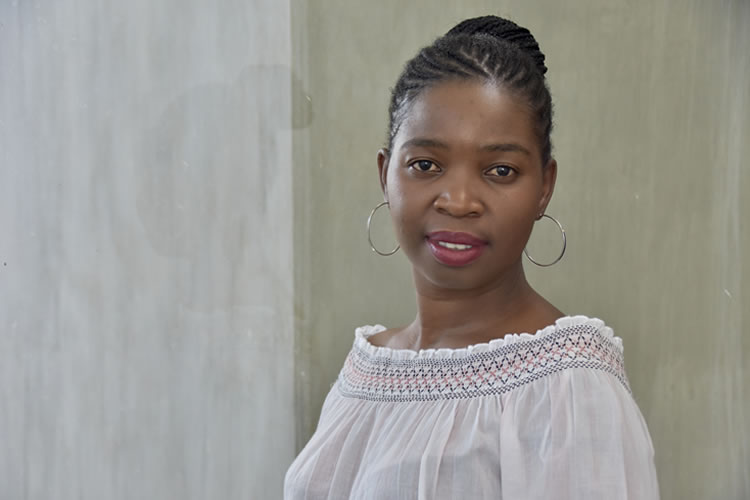On 15 August 2022, the Centre for Human Rights’ Expression, Information and Digital Rights unit hosted a digital rights training and capacity-building workshop for civil society organisations from Botswana, DRC, Eswatini, Lesotho, Malawi, Mozambique, Madagascar, Namibia, Zambia and Zimbabwe. Among the participants were representatives of NGOs, journalists, lawyers, and academics. The training was based on the Digital Rights Landscape in Southern Africa report launched on 3 August 2022. The objective of the training was to advance and enhance public interest and awareness of digital rights among civil society organisations.
The keynote speaker was the African Commission on Human and Peoples’ Rights (ACHPR) Special Rapporteur on Freedom of Expression and Access to Information in Africa, Honourable Commissioner Ourveena Geereesha Topsy-Sonoo (the Special Rapporteur). In her address, the Special Rapporteur prompted the participants to the 2019 ACHPR Declaration of Principles on Freedom of Expression and Access to Information in Africa which extensively encapsulates principles on digital rights in the context of the promotion and protection of the rights of access to information and freedom of expression as enshrined in article 9 of the African Charter on Human and Peoples’ Rights. Commissioner Topsy-Sonoo noted the challenges and restrictions experienced in digital spaces and acknowledged the disparities that some rural communities, marginalised communities, and women face.
The Assistant Director of the Centre for Human Rights, Mr Lloyd Kuveya welcomed the participants and expressed worry about the restrictions and challenges experienced in Africa as the continent embraces the digital age. He noted the acute challenges among vulnerable and marginalised groups and expressed hope for the training to enhance civil society organisations' capacity and activists to undertake advocacy work for digital rights in their respective countries. The main facilitator for the training was Koliwe Majama, a seasoned media, information, and technologies professional with over 15 years of experience working in civil society, lobbying, and advocating for media and internet freedom. The training sessions covered aspects of conceptualisation of digital rights, internet access, inclusion and equality and privacy, data protection and regulation of emerging technologies and freedom of expression online.
The first session covered the meaning of digital rights, Koliwe used the human rights framework in discussing the meaning of digital rights. Whilst focusing on the meaning, she lamented that in the exercise of rights. The second session focused on Internet access, inclusion, and equality in Southern Africa. Emphasis was placed on digital penetration, the rural-urban divide, and the gender divide where infrastructure and data costs are determinants of access to the Internet. This session also included a discussion on the context of rural communities that Ompha Tshamano facilitated. The discussion highlighted factors that acutely manifest in the context of the digital age such as inaccessibility on the internet and associated digital devices; the gender digital divide which disproportionately affects women; issues of ownership; traditional gender roles that are driven by patriarchy; and illiteracy, amongst others.
The session on freedom of expression online was facilitated by Marystella Simiyu and Dr Tomiwa Illori, both from the Centre for Human Rights, Expression, Information and Digital Rights unit. The session centred on content regulation and content moderation. Dr Tomiwa Illori discussed content regulation and indicated that the current legislation regulating most freedom of expression rights is vague. Therefore, there is a need for legislative reform that considers context instead of reliance on automated systems that have their weaknesses such as bias. Marystella focused on information disorder in the online space and provided insight into rights-based approaches to countering disinformation.
The training included experience sharing by participants and ended with the evaluation of the sessions. The digital rights training will resume on the 4th and 5th of October, focusing on National Human Rights Institutions (NHRIs) and Government officials. The USAID’s Advancing Rights in Southern Africa program (ARISA) supports this project.
For more information, please contact:

Expression, Information and Digital Rights Unit
Tel: +27 (0) 12 420 4199
Fax: +27 (0) 86 580 5743
hlengiwe.dube@up.ac.za

Expression, Information and Digital Rights Unit
Tel: +27 (0) 12 420 3810
Fax: +27 (0) 86 580 5743
Ompha.Tshamano@up.ac.za

Expression, Information and Digital Rights Unit
Tel: +27 (0) 12 420 3810
Fax: +27 (0) 86 580 5743
marystella.simiyu@up.ac.za


